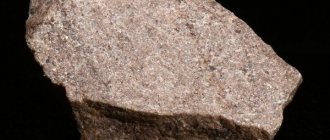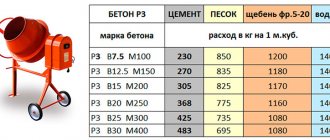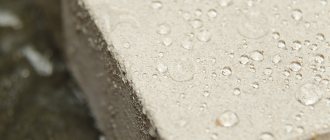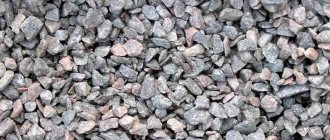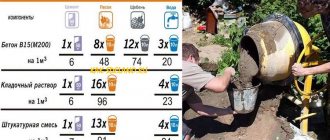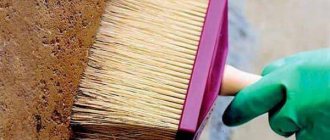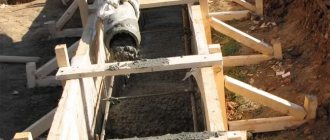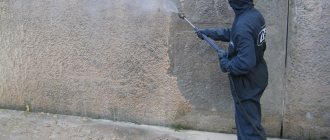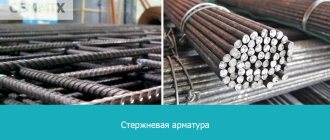The most important characteristics are the class or grade of concrete, which determine its quality and durability. When constructing small buildings that require a smaller volume of building mixture, you can mix it yourself and know exactly what components were used. But for more serious buildings (for example, a monolithic foundation), it is recommended to order a concrete mixer with a ready-made solution in order to fill the mixture in one go. The problem is that once the concrete is already mixed, it is impossible to check its quality and compliance with the brand by eye. Unscrupulous sellers take advantage of this. The only way to protect yourself from fraud is to clearly know what documents must be provided during the delivery of the construction mixture.
How can a concrete seller deceive?
Some private companies use several tricks:
- Being a third party (in other words, resellers) they substitute documents. They provide the customer with a document for more expensive concrete, and they themselves deliver a mixture of lower quality.
- A significantly smaller volume of concrete is delivered and water is added to it during unloading.
- Dilute the mixture before delivery and immediately pour the diluted mixture.
Also, unscrupulous suppliers often “forget” to provide the most important document for concrete. It is important to remember that according to GOST, the seller must provide a quality passport completed in accordance with all requirements and a certificate of conformity (if the concrete has passed the appropriate test) for the building mixture. If at least one of these documents is missing, the buyer has the right to refuse payment and cancel the order.
Quality passport
This is the main document confirming the characteristics of concrete and, accordingly, its quality. According to the standards, a quality passport must be issued for each batch of the mixture produced on the line within 24 hours. It must indicate the GOST to which the concrete mixture meets (for example, GOST 28013-98 or 7473-2010). The document is issued only after laboratory examinations and appropriate tests of the solution have been carried out. If it turns out that the concrete was produced with violations, then the quality passport (can also be called a concrete mix quality document) will be the main paper with which you can go to court.
According to clause 8 of GOST 7473-2010 on the supply of concrete mixtures:
- The concrete supplier must deliver in accordance with the relevant contract. It must indicate the quality parameters of the produced concrete mixture.
- Before delivery, the customer can request information from the supplier about what materials are used for the concrete mix and their quality. Also, upon request, the manufacturer is obliged to provide data from preliminary product tests.
- The hardening mode of the mixture and the rate of strength gain can be represented in the form of a curve. It indicates a temperature of 20°C and an interval from 1 to 28 days.
- When delivering the finished mixture, the supplier must provide the buyer with a printed and certified passport for concrete with a test report and a delivery note. Additionally, a quality certificate is provided (if provided).
Features of filling out a passport for concrete
The following must be indicated at the top of the passport:
- Batch number and volume of the supplied mixture in cubic meters.
- Next comes the name and address of the manufacturer or supplier and the recipient's details.
- GOST, brand, class of the mixture and date of its manufacture.
- Date and time the mixture was sent. It is very important that the supplier adheres to the correct delivery times and uses the appropriate vehicles for this (read more about this here).
The following are the test parameters for the building mixture:
- workability;
- concrete compression class for 28 days;
- other quality indicators (for example, this block may indicate the frost resistance of the composition);
- coefficient of variation of strength in percent;
Healthy! The strength indicator may be 30% lower than indicated in the project. The test samples on day 14 correspond to this parameter. Full strength gain occurs on the 28th day.
- required strength of the composition in MPa;
- design grade for average density (indicated only for lightweight concrete);
- name and volume of the additive (for example, 0.3% Khimkom P-1);
- class of specific efficiency of materials;
- maximum aggregate size.
At the very bottom of the document there should be a date of completion, as well as the signature of the head of the laboratory. All this is sealed with the seal of the organization.
Healthy! If several batches of concrete mix are delivered, then each of them must have a separate quality document. The passport and other accompanying documents must be kept for at least 28 days, since only after reaching 100% strength will it be clear whether the concrete meets the declared characteristics.
You can find the document form on the quality of the concrete mixture in GOST 7473-2010 (Appendix B).
GOST 7473-2010
If we compare two options for filling out documents, then this option absolutely complies with the requirements of GOST and is filled out in accordance with all the rules. In addition to the seals of the organization, there is also a stamp of the laboratory and the certifying body.
The supplier may also provide a simplified version. In the following example of a passport, some items are missing, in general, it displays all the required characteristics, so this option is also acceptable. But from this passport it is clear that the mixture does not have a quality certificate, as well as confirmation of laboratory testing.
Conclusion
The main documents confirming the suitability of concrete for performing certain work, according to the project and standards, are a passport and a certificate.
The passport is the main document about the quality of the supplied concrete mixture, without which it is prohibited to accept it onto the site. It reflects all the characteristics of a particular batch, established based on the results of laboratory tests. In case of concrete non-compliance with the requirements or problems with structural strength, it is the passport retained by the construction contractor that will become the main evidence of the contractor’s innocence and claims against the manufacturer.
Obtaining a concrete certificate is not a mandatory procedure. But many manufacturers do this to increase their rating. The certificate is issued for a period of one to three years and applies to all parties specified in it. Certification is carried out by a licensed third-party company that objectively assesses product compliance with regulations. The manufacturer can order certification according to certain criteria or a comprehensive assessment of products in the form of a QMS. It should be borne in mind that the certificate does not replace a passport, but is an additional objective confirmation of the quality of the building material. That is, you can accept concrete without a certificate, but you cannot accept it without a passport.
Certificate of Conformity for Concrete Mix
This is another important document and if the manufacturer is ready to provide a quality certificate, then this creates more confidence. If you have this document, make sure that its number is entered in your passport.
A quality certificate is issued only after the mixture has passed all the necessary tests. It is also important that the certification be carried out by a third party licensing organization. According to GOST, there is no separate form and requirements for filling out the certificate, so the option is acceptable when information about laboratory tests appears in the quality passport. For example, if we look again at one of the example forms, we see that it has the stamp of the supplier’s company, laboratory and certification center.
Some manufacturers obtain certificates for certain mixtures or all of their products. If the certificate is issued separately, it usually states:
- certificate number and validity period;
- certification body (name of organization, address and contact details);
- certified products (types of mixtures and their parameters are listed);
- compliance with regulatory authorities (which GOST or TU products fully comply with);
- manufacturer information;
- information about the issue and basis for issuing the certificate.
The document is signed by the head of the body and the expert and certified by a seal. Other forms are also acceptable. It is also worth considering that there are several types of such documents.
Types of concrete certificates
There are 3 types of certification:
- Voluntary. Confirms that the manufacturer’s products comply with GOST standards, technical specifications and other regulations. To obtain a voluntary certificate, you must contact an accredited organization and provide all the necessary documents. The main difference from other types of certification is that when receiving voluntary certification, the applicant himself lists the criteria by which his products will be assessed. This certificate is valid for 1-3 years. After its expiration date, you must perform the product verification procedure again.
- According to the form of the QMS (quality management system). In this case, the parameters for checking building compositions are determined not by the customer, but directly by the certification center itself. Accordingly, the requirements are more stringent. If certification is carried out according to the QMS form, then not only the provided sample of the composition is checked, but also audits are carried out (the company is notified about them in advance) at the supplier’s enterprise itself. This certificate is more detailed; it describes not only the characteristics of concrete, but also production technologies. If a supplier provides this type of document, this confirms its high competitiveness and guarantees the quality of the purchased concrete mixture. The QMS certificate is valid for 3 years. To renew it, you must re-pass the audit.
- Sanitary. In certificates of this type, the emphasis is on how safe it is to work with concrete and that it fully complies with the specifications. Before issuing a certificate, hygienic tests are carried out in licensed laboratories. Based on the results of the research, the document provides information about potentially harmful substances in the composition and the intensity with which they can be released into the environment. Additionally, the mixture is assigned a specific area of application (for example, that the composition can be used in the construction of food, pharmaceutical or other industrial facilities). Also, the certificate must indicate the features of safe operation, transportation, and disposal of the material, in accordance with SanPiN. The document must be signed by the chief sanitary doctor and is valid for 1 year. If the certificate is issued in the ISO 9001 form, this means that mixtures from abroad were tested.
In fact, any type of certification is considered voluntary. The difference lies in the validity period of the document and some features of checking samples.
Proper testing
Testing a concrete mixture for quality is a mandatory procedure at every enterprise. It does not matter what the building material will be used for and what loads will be placed on it. Among the many different quality indicators, strength stands out. It is this that makes concrete one of the most popular building materials.
To issue a passport, concrete must pass several tests. During their implementation, real strength indicators must be established. After heat and humidity treatment (HMT), the concrete cube goes through another stage of testing. Based on their results, the tempering strength of the product is formed.
Concrete samples from which the building will be constructed are tested after natural curing for seven days. It is during this period that concrete is able to produce the required strength of seventy percent of the declared grade.
Similar tests are also carried out 28 days after production. Sometimes it happens that, according to their results, concrete does not correspond to the design grade, but has a margin of strength. The results of such tests are not indicated in the passport, but if a contract has been previously concluded, the manufacturer can send the buyer the corresponding paper.
Testing of masonry mortar and ready-mixed concrete is carried out according to a slightly different scenario. Since such mixtures are not subjected to HTE, they cannot be tested immediately after production. In this case, testing is carried out after 7 and 28 days.
There are often cases when some indicators do not meet the standards. In such a situation, the buyer has every right to demand compensation for costs and argue with the supplier, including litigation.

